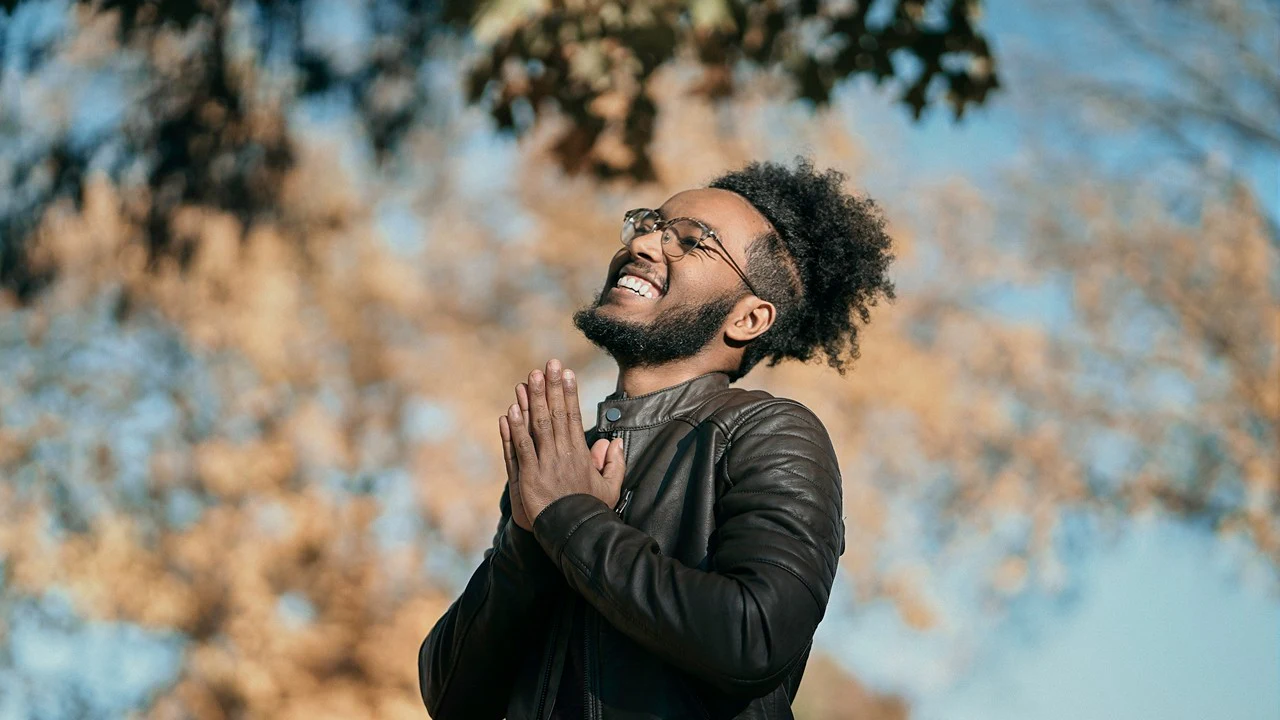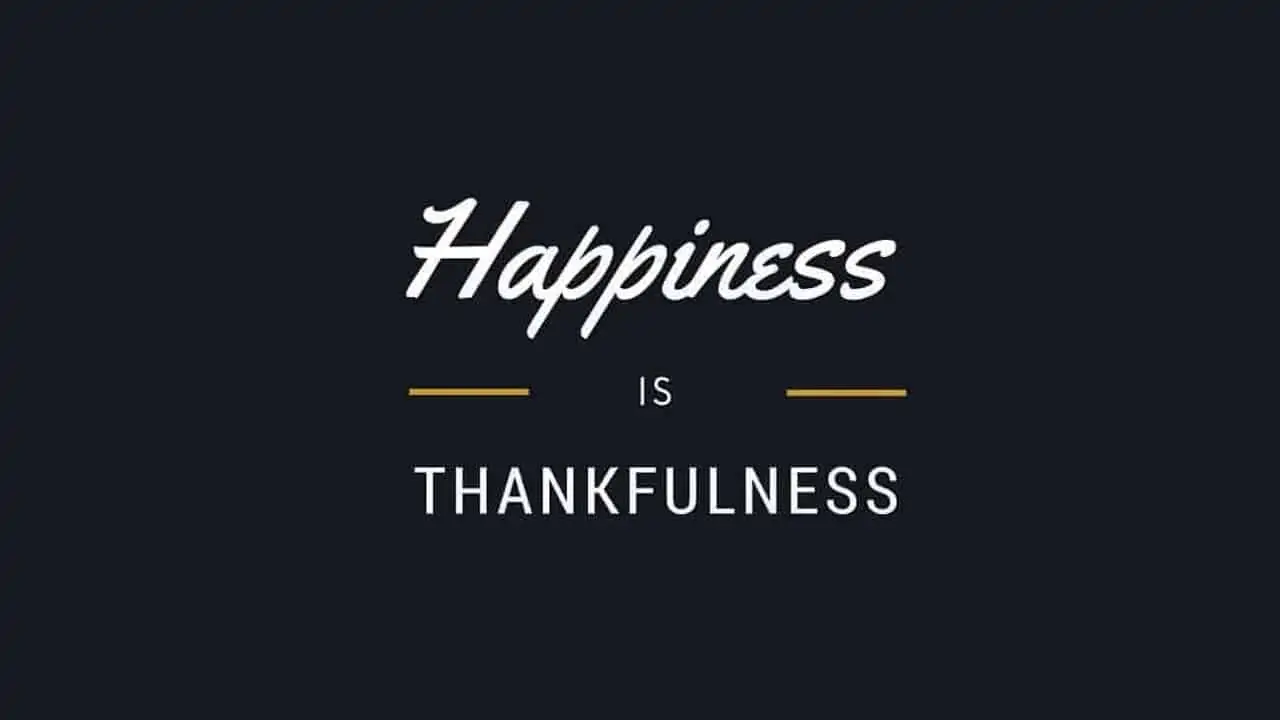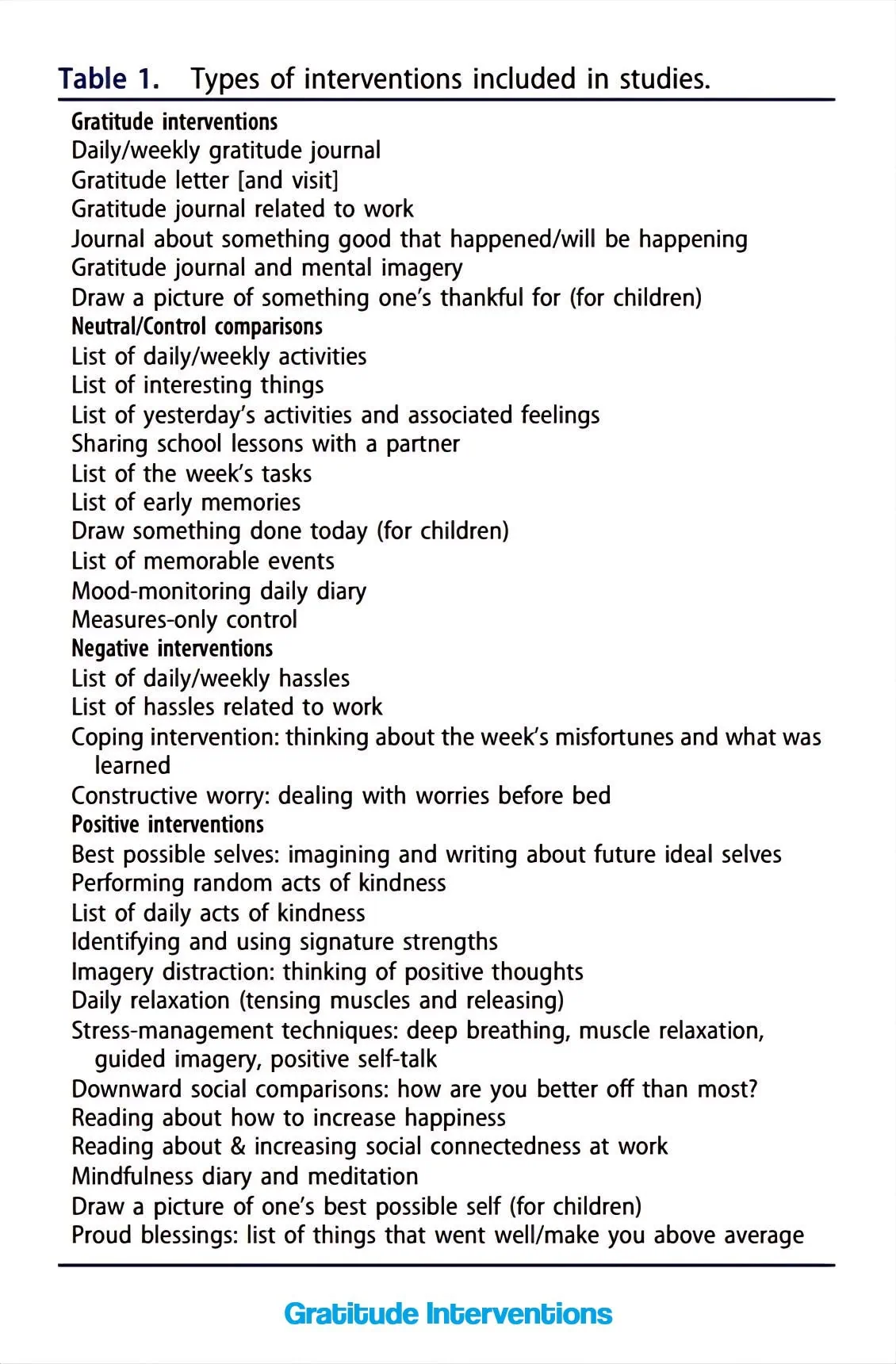Today's Thursday • 7 mins read
Gratitude is a zero-cost key to happiness. Research shows that daily gratitude boosts happiness and life satisfaction.
Of itself, gratitude is a pleasant emotion. As practice, gratitude lets us feel happier in many simple ways.
Let’s be clear that gratitude is an emotion that results from a two-step process:
- first, noticing that a positive thing happened to us; and
- second, noticing that someone or something outside ourselves made that happen (Weiner, 1985).
Gratitude = Key To Unlocking Happiness
Gratitude is the key that opens the doors to both immediate happiness and lasting happiness. This is how:
- When you notice what you already have, you spend less time wanting more, which makes you feel more satisfied.
- Feeling thankful also makes you kinder and closer to others, and good relationships are a big part of happiness.
- Expressing gratitude improves your mood, lets you savor positive moments, and makes other people like you.
- Grateful people also cope better with stress, which indirectly raises their joy.
Over time, these effects add up, and gratitude helps you become happier overall.
Look at the equation below:

- Happiness is directly related to thankfulness: The more things you are thankful for, the happier you are.
- Happiness is inversely related to resentfulness: The more resentments, grudges, and regrets you have in your life, the less happy you are.
6 Benefits of Gratitude
Gratitude works in many ways to make us happier.
1. Gratitude makes you more helpful.
Those who strongly believe in gratitude are better at understanding other people’s points of view. People see them as more generous and more helpful to others (McCullough, Emmons, & Tsang, 2002).
Experts have a term for our helpfulness toward others: “Prosociality.”
Researchers at the University of New South Wales discovered that when people hear someone express thanks, they are more likely to consider building a meaningful relationship with that person.
2. Gratitude builds friendships and deepens bonds.
Gratitude helps build friendships and other social bonds. These are social resources because, in times of need, these social bonds are wellsprings to be tapped for the provision of social support.
“Gratitude, thus, is a form of love, a consequence of an already formed attachment as well as a precipitating condition for the formation of new affectional bonds.” – Robert Emmons
Encouraging people to focus on the benefits they have received from others leads them to feel loved and cared for by others (Reynolds, 1983).
Gratitude also makes it easier for couples to work out their problems. Thanking your partner makes you feel more positive toward them and more comfortable discussing relationship issues.
3. Being thanked inspires you to put in more effort.
Managers who care to say “thank you” to their employees may notice that those employees are more inspired to work harder (Adam Grant & Francesca Gino, 2010).
Researchers at the Wharton School randomly gathered fundraisers for the University of Pennsylvania and divided them into two groups.
One group made the same phone calls they always did to request alumni donations. The other group had the director of annual giving thanking them for their efforts.
Those given the message of thanks made 50% more fundraising calls the following week than those who did not.

4. Gratefulness makes you feel more spiritual.
Grateful people are more likely to admit a belief in the interconnectedness of all life. They also tend to be more committed to and responsible for others (McCullough & Emmons, 2002).
Gratitude does not require one to have religious faith, but faith makes it easier to be grateful. People who regularly attend religious services and participate in religious activities, like prayer, are more likely to be grateful.
5. Being thankful makes people less materialistic.
Grateful people put less importance on material goods. They are less likely to judge their own and others’ successes in terms of material possessions.
They feel less envy towards others. And also more likely to share their belongings with others.
Researchers found that thinking about experiential purchases (like trips or events) boosts gratitude and generosity more than reflecting on material purchases (Walker & Kumar, 2016). When people recall purchased experiences and feel grateful, they may tend to care less about buying material things.
Sonja Lyubomirsky, the author of The How of Happiness, says, “The expression of gratitude is a metastrategy for achieving happiness.”

6. Being grateful increases happiness and reduces stress.
Gratitude has been shown to increase well-being (Emmons & McCullough, 2003).
Gratitude correlates with positive affect and self-esteem (Kashdan & Uswatte, 2006), life satisfaction (Wood & Joseph, 2008), and stronger interpersonal relationships (Algoe & Haidt, 2008).
This study found that university students who wrote letters expressing a high level of appreciation or gratitude saw their happiness increase after each letter. The lead researcher said, “The more they wrote, the better they felt.”
Gratitude also lowers stress and depression. This study revealed that writing down gratitude events led to a reduction in perceived stress and depressive symptoms among health care practitioners.
Grateful people also do not ignore the presence of the negative aspects of their lives. They, rather, know how embracing their negative emotions can increase their hopefulness.
How Does Gratitude Make You Happier?
So, if there is a link between gratefulness and happiness, how does gratitude make you happier?
- Attention shift: Gratitude redirects focus from what’s missing to what’s present, increasing positive thoughts and reducing rumination.
- Reframing: It helps reframe events more positively (e.g., seeing setbacks as learning opportunities or gifts), which lowers stress and boosts mood.
- Social bonding: Feeling grateful motivates us to connect with others and reciprocate their good acts. People noticing our gratefulness feel motivated to connect with us. This fosters relationships that provide support and joy.
- Reward amplification: Gratitude intensifies savoring of good moments, making positive experiences feel richer and more memorable.
- Emotion regulation: Regular gratitude practice reduces negative emotions (envy, anger) and improves coping, producing more stable well-being.
- Prosocial feedback loop: Gratitude promotes generosity, which elicits positive responses from others and reinforces the griever’s own happiness.
How Can You Practice Being Grateful?
- Feel grateful for waking up to a new morning today. Feel blessed to have received the gift of a day, something that millions won’t get today.
- Notice the things you already have in your life and feel thankful for them. Appreciate them for the comfort and convenience they give.
- Make a list of the good people in your life, and do something for at least one of them to show them you don’t take them for granted. Thank them for just being in your life.
- Feel grateful for the food on your table. Thank everyone who made an effort to produce your food, from the farmer to the cook.
- Write a gratitude journal. Express your gratitude in a single line for one thing that made your day worthwhile, despite all the struggles. A journal entry lets you savor the joyful event and also gives you happiness when you read it later.
- The Three Good Things is a proven happiness-boosting exercise to practice gratitude.

Final Words
Happiness changes over time.
Being happy doesn’t mean you smile all the time. Happiness comes in blips and then fades.
To find those blips of happiness, do small tasks like writing down things you’re grateful for or sending a thank-you note. They can raise your positive feelings, improve sleep, and reduce stress and sadness.
As you finish reading this, do this: Thank someone for something.
If not to them in person, then at least in your mind. You’ll be happier as a result.
√ Also Read: 10 Simple Ways To Practice Gratitude (For A Happier You)
√ Please spread the word if you found this helpful.